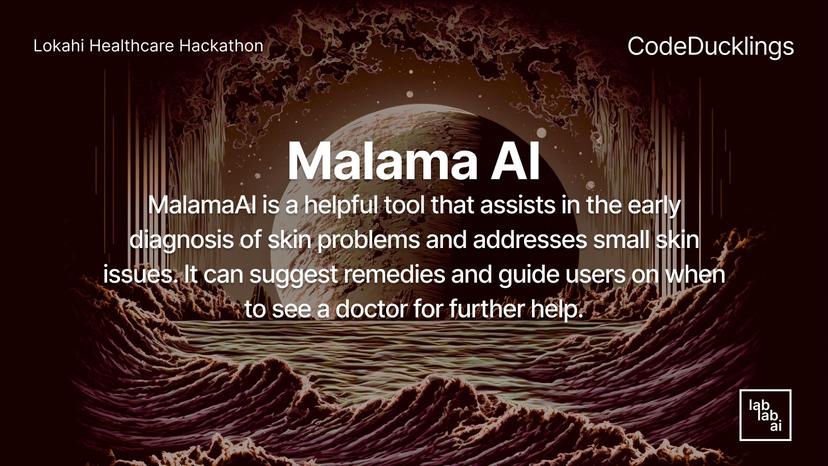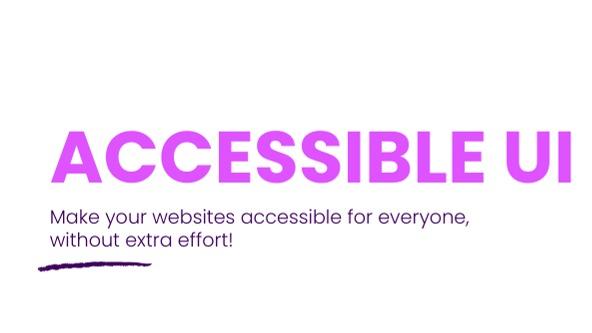
Roha Pathan@roha_pathan282
is under improvement
is under improvement
🤝 Top Collaborators
🤓 Latest Submissions

MalamaAI
MalamaAI is a user-friendly application designed to support individuals in managing their skin health. By providing early diagnosis for various skin conditions, MalamaAI helps users identify potential skin issues before they become more serious. The app is particularly useful for addressing common skin problems, offering insights and guidance based on user input. With its advanced features, MalamaAI not only suggests possible remedies tailored to the specific skin issues reported by users but also provides information on best practices for skincare. The app takes into account various factors, such as skin type and lifestyle, to recommend personalized solutions. Furthermore, MalamaAI emphasizes the importance of professional medical advice. It includes a feature that advises users on when it is necessary to consult a doctor, ensuring that they seek appropriate care when needed. This combination of self-assessment tools and guidance helps empower users to take charge of their skin health while promoting responsible healthcare practices. MalamaAI aims to make skin care accessible and informative, helping individuals understand their skin better and make informed decisions about their health.
11 Dec 2024

Accessible UI
In a world where 5.35 billion people are regular internet users—a number expected to rise to 7.9 billion within five years—an effective online presence is crucial for businesses. With 71% of businesses already having websites, the digital landscape is increasingly competitive. However, 95% of websites fail to meet proper contrast ratios, negatively affecting visually impaired users. Dyslexic individuals find 4.33 out of 10 websites problematic due to complex text and layouts. With 780 million dyslexic individuals, 450 million with arthritis, and 295 million with moderate to severe blindness, the need for accessible web design is clear. Beyond user experience, inaccessible websites pose legal risks, evidenced by over 200 web accessibility lawsuits in 2022. AccessibleUI addresses this by automatically identifying and fixing web accessibility issues based on WCAG standards. It directly modifies the code, saving time and allowing designers to focus on creativity. AccessibleUI creates inclusive designs, expands audience reach, improves SEO, reduces long-term development costs, enhances brand reputation, and mitigates legal risks. Future plans include understanding task context to automate drafting and changes, generating accessible designs, visualizing websites for various disabilities, and implementing a drag-and-drop feature that converts designs into code. AccessibleUI is poised to revolutionize web design, making it more inclusive and effective for businesses and users alike.
15 Jul 2024

AmpuFitness
We want to help amputees get access to exercises fit specifically for them. Each disability and amputation commonly comes with different problems and AI is a wonderful tool to accommodate for them and give personalized results so they can get fit. We will be asking the user for 14 questions about their disability and their diet to get a more accurate recommendation based on a multitude of studies and articles that recommend different tips to improve their lives. They can also speak further for dietary recommendations and get personalized exercises. This can further be expanded with insurance companies investing in these tools and more deep learning.
3 May 2024



